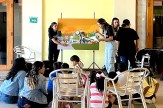‘Cancer devastates people’s lives.’ One Northeastern student shares her survival story in advance of annual Relay For Life event
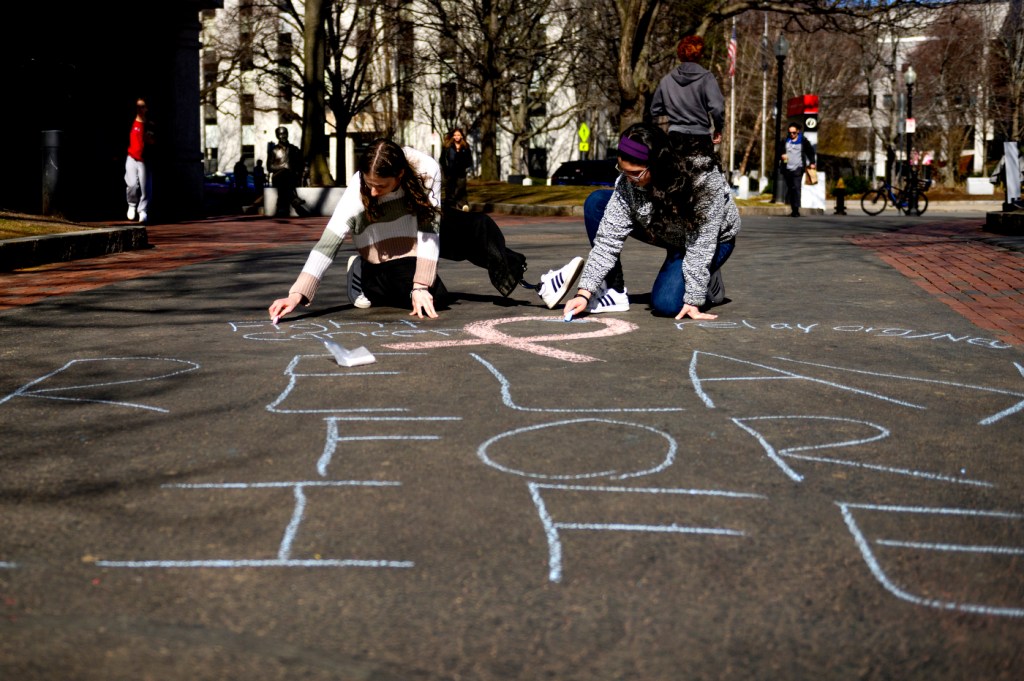
At age 9, Maya Oberstein was participating in a gymnastics competition when she fell and couldn’t recover. At first, she thought she had just twisted something in her leg. After all, she had developed a high pain tolerance from working out nearly every day.
But after a subsequent doctor’s visit found a large mass in her left knee, it quickly became apparent that her life was about to change drastically.
Oberstein was diagnosed with osteosarcoma, bone cancer in her left knee.
“It was very fast,” says Oberstein, now a second-year undergraduate nursing student at Northeastern University. “I was in shock.”
Within a week, she started chemotherapy and learned that she would have to get some sort of amputation.
“It was a pretty hard hit, as you can imagine,” says Oberstein, especially for a gymnast. “I thought I was going places. Who knows?”
Her family decided on a rotationplasty surgery—where the affected bone is resected and the tibia is rotated 180 degrees to form a functional knee joint. The surgery was extremely rare in the U.S. at the time, but it allowed for maximum functionality to enable her to keep an active lifestyle.
“It’s been great, but it was a hard decision,” Oberstein says. “I look different than other kids. I always wanted to be active. But that’s where Relay For Life came in.”
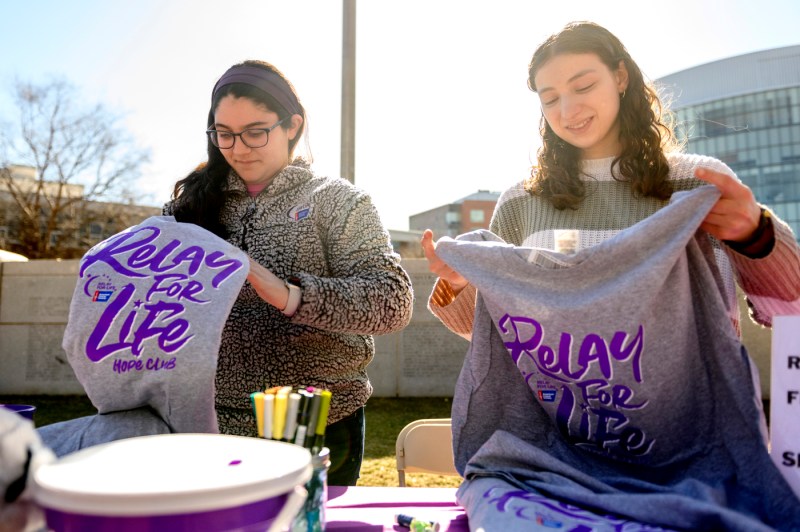
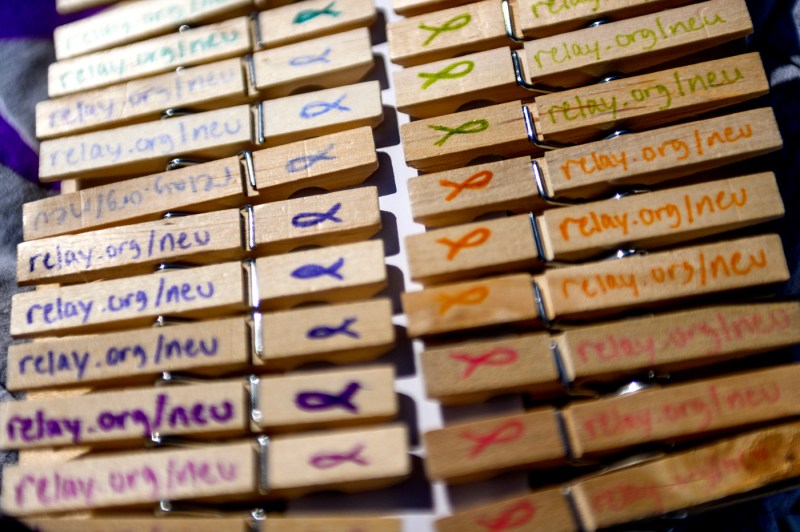
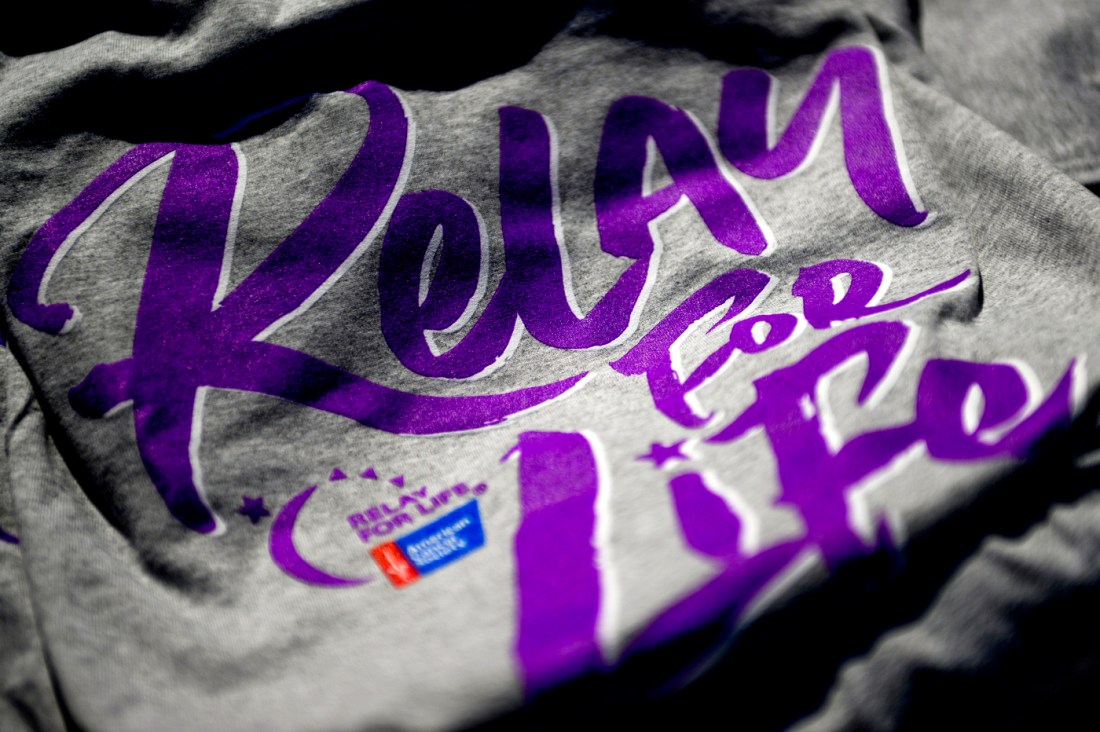
Relay For Life is a global event that brings communities together to honor and remember loved ones who have died from cancer and those living with the disease. Donations go to the American Cancer Society, a non-profit organization that aims to attack cancer through research, education, advocacy and family services.
Relay For Life is in its 14th year at Northeastern. Participants can sign up online or in person until the start of the event at 6 p.m. Friday, March 24, at the Mathews Arena.
“I always talk about it as this is us building a cancer community,” says Jessica Richards, a student leader in Northeastern’s Relay For Life club. “This is us, building a support network and building a place where our community can come together around something so horrible and do a lot of good.”
Each year, student organizers work to grow the organization’s on-campus presence. Before COVID, they raised about $300,000 annually, with about 3,000 participants coming to Matthews. When COVID hit in March 2020, organizers scrambled to move it online. This year, about 2,000 people are hoping to raise $200,000.
In the event’s history, Northeastern’s club has raised about $3 million in 14 years.
Other events throughout the year include: “Real Huskies Wear Pink” for breast cancer awareness, the “Great American Smokeout” to get people to quit smoking and vaping for lung cancer awareness, and the “World Cancer Day” brunch. Students also volunteer at places such as Boston’s Hope Lodge, which allows cancer patients to stay for free as they undergo treatment.
“They are dedicated, passionate, innovative, and invaluable volunteers for the cancer society,” says Allie Cyr, a senior development manager at the American Cancer Society and former Northeastern club advisor. “Cancer doesn’t stop; they don’t stop.”
For Oberstein, Relay For Life was the extra support system that her family needed. During her treatment in 2012, her brother and father took part in a relay in Oberstein’s honor at her local high school in West Hartford, Connecticut. Afterward, they visited her in the hospital, bringing balloons and a card with messages from those who attended, saying, “feel better soon.”
“It was the sweetest thing,” Oberstein says.
The first Relay For Life event she attended was the following year, in 2013.
Having the community come together for the same purpose was an amazing feeling, Oberstein says. As a result, everyone can raise money to support further research, treat cancer and support survivorship.
When Oberstein came to Northeastern, she had no idea the university had a Relay For Life club. One of the members reached out to her, knowing they were survivors of the same cancer. Oberstein agreed to join and even talk at events to encourage others to join.
Cancer follows her to this day—especially when the conversation turns to what happened to her leg.
“There’s not much you can do to get around it,” Oberstein says
She continues to advocate for health equity and to bring life-saving treatments in the United States to other parts of the globe.
“[Cancer] devastates people’s lives,” Oberstein says. “It devastates their families, their communities. Some people lose every day of their life.”
Beth Treffeisen is a Northeastern Global News reporter. Email her at b.treffeisen@northeastern.edu. Follow her on Twitter @beth_treffeisen.



